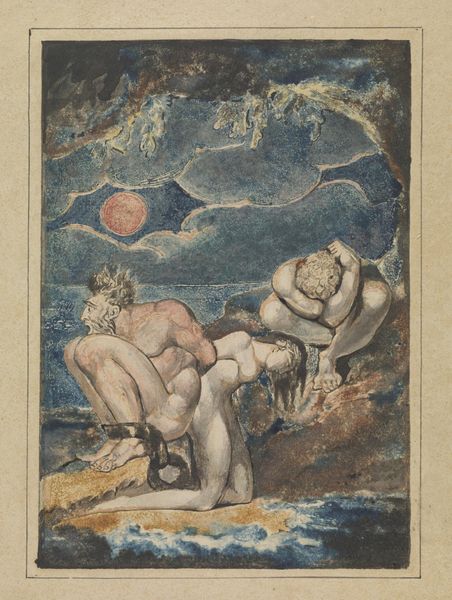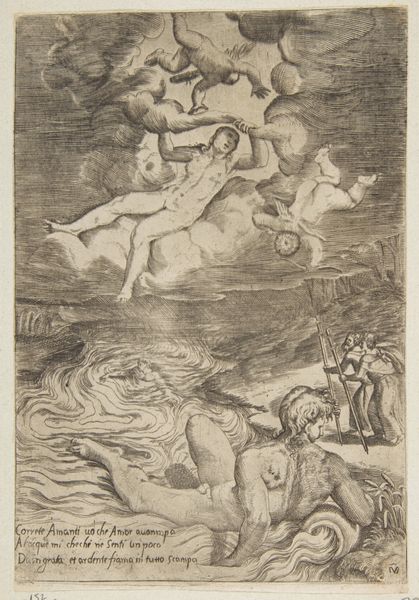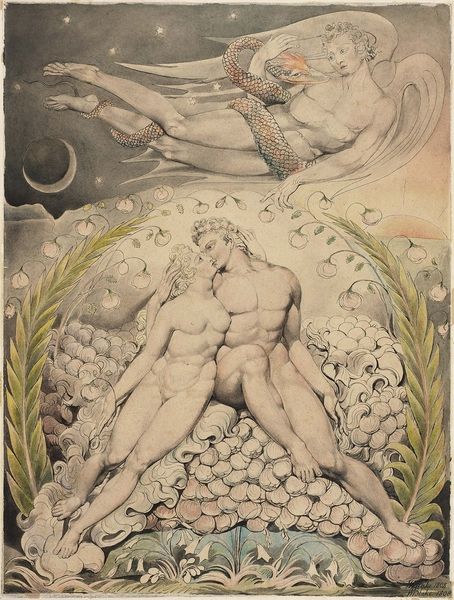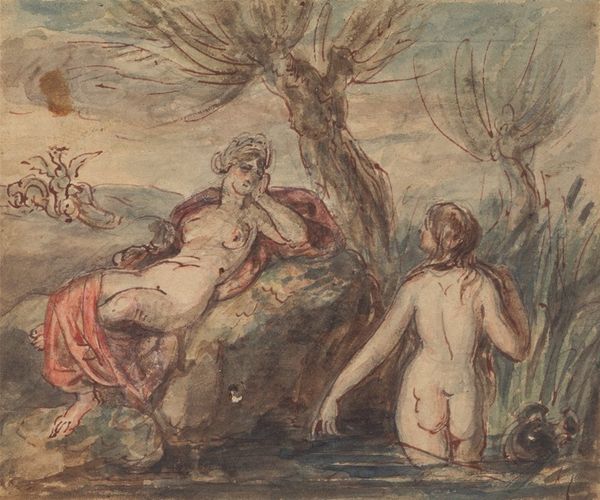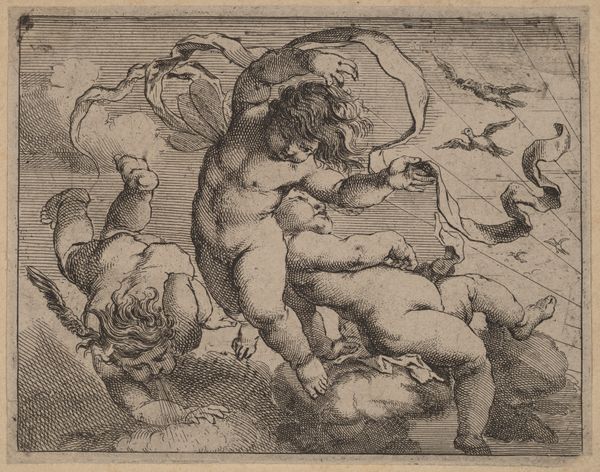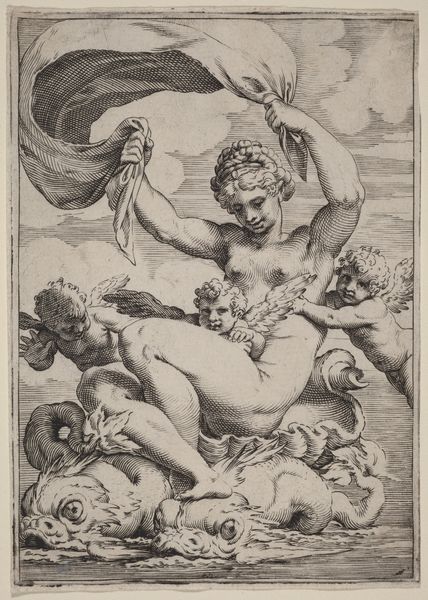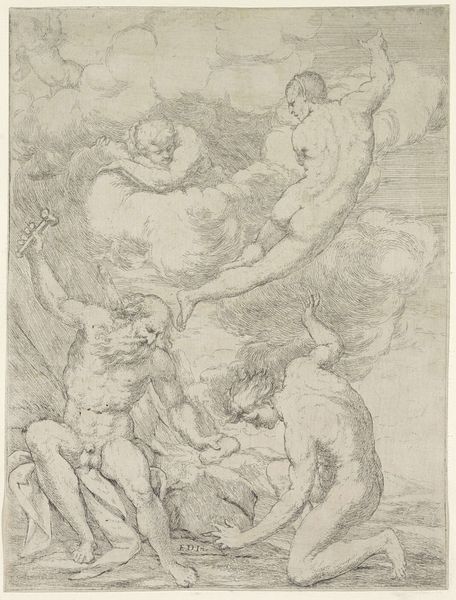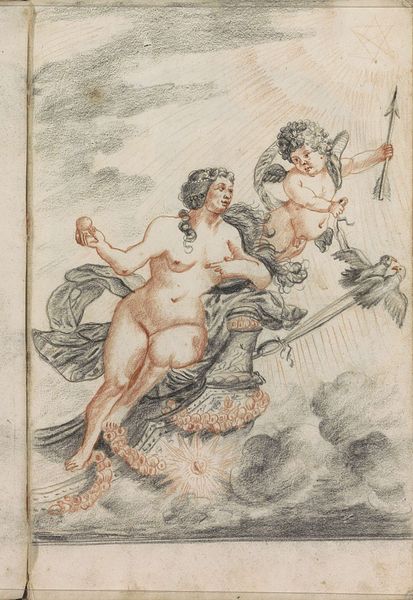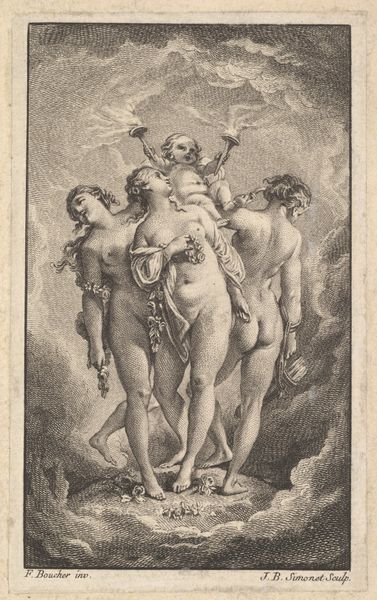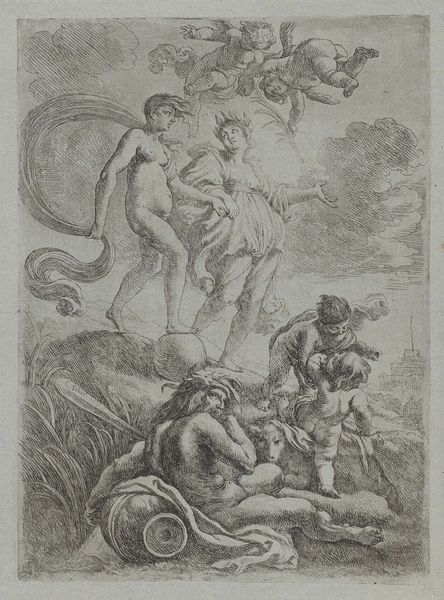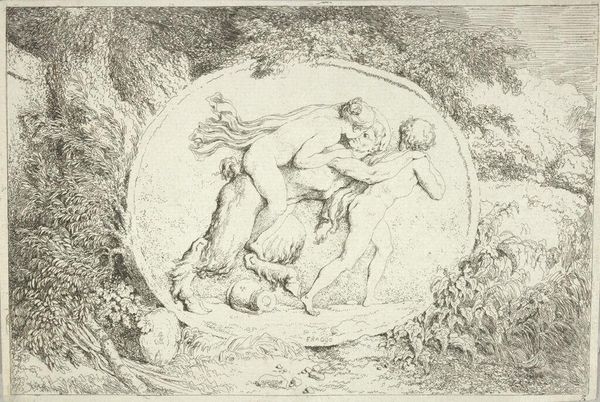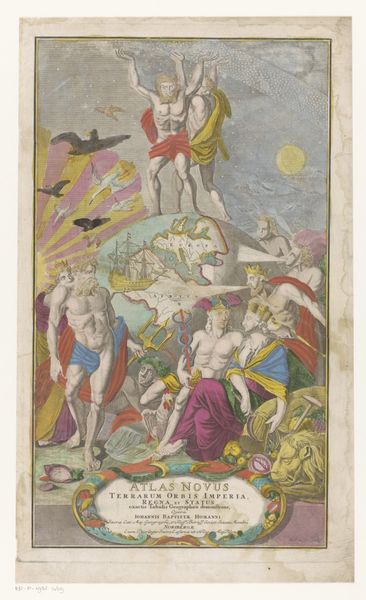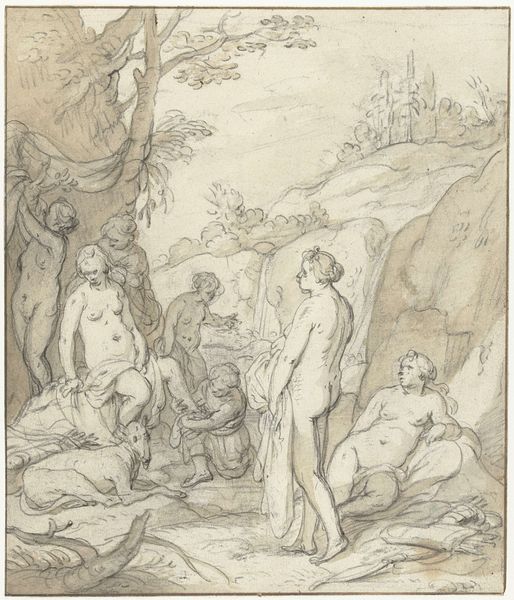
Dimensions: support: 170 x 120 mm
Copyright: NaN
Editor: This is William Blake's Frontispiece to ‘Visions of the Daughters of Albion’ from the Tate Collection. The figures seem trapped, almost sculptural. What do you see in terms of the composition and form? Curator: Note the stark contrast between the muscular figures and the ethereal, almost dissolving, landscape. Observe how Blake uses line and color to create a sense of confinement and psychological tension. The figures are arranged in a pyramidal structure, suggesting a classical influence, yet the execution is uniquely Blake's. Editor: It’s interesting how the bodies are so defined, yet the background is so fluid. Curator: Indeed. Blake masterfully juxtaposes the solidity of the human form with the ephemeral nature of the visionary realm. The limited palette further emphasizes this tension, focusing our attention on the interplay of light and shadow across the bodies. The color is not illustrative, but structural. Editor: I see that contrast more clearly now, thank you. Curator: My pleasure. Consider how the formal elements contribute to the overall meaning and emotional impact of the work.
Comments
tate 10 months ago
⋮
http://www.tate.org.uk/art/artworks/blake-frontispiece-to-visions-of-the-daughters-of-albion-n03373
Join the conversation
Join millions of artists and users on Artera today and experience the ultimate creative platform.
tate 10 months ago
⋮
Blake''s invention of a method of printing in relief from etched plates, first used in 1788, gave him control over the style, production and publishing of his own books. By 1794 he had begun applying coloured pigments to his printing plates and then, as a further development, printing some of the designs in his books as separate coloured images. Visions of the Daughters of Albion was an illuminated book with eight designs which Blake first advertised in 1793. This frontispiece is not part of any copy of the book but was separately printed in colours. Gallery label, August 2004
